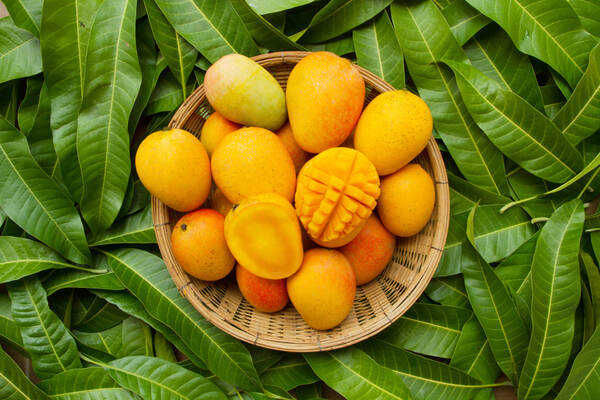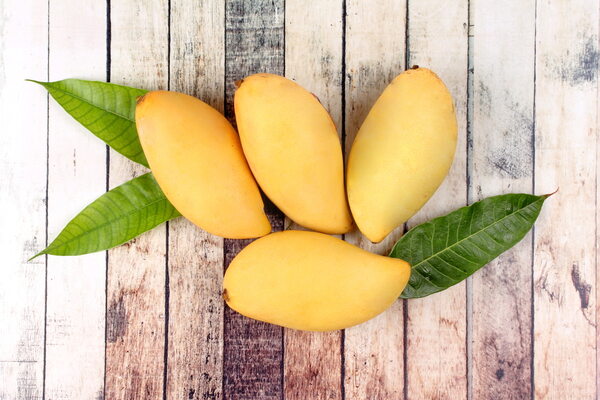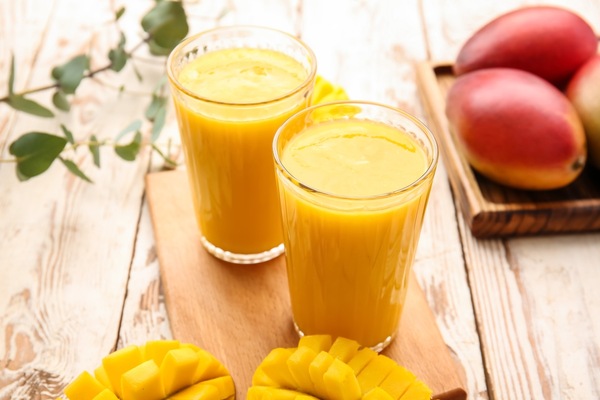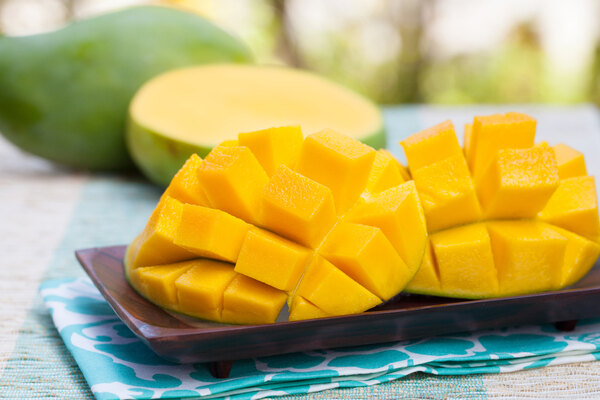Mango on Keto: Your Ultimate Guide to Stay in Ketosis
Is Mango Keto?
❌ NO — Mango is not considered keto-friendly due to its carb-heavy profile. A typical medium-sized mango contains around 45 grams of carbs, which can significantly impact ketosis. While mangoes are delicious and nutritious, they should be consumed in moderation or avoided altogether by individuals aiming to stay in ketosis.
Are you a mango lover on a quest to achieve a state of ketosis? The tantalizing sweetness and juiciness of this tropical fruit might leave you wondering if it can fit into your low-carb lifestyle. In our comprehensive guide, we unveil the truth behind the question that’s been on the minds of many keto enthusiasts: Is mango keto-friendly?
While the keto diet calls for strict carb restriction, the high natural sugar content of mangoes might raise some concerns. However, fear not, as we’re here to shed light on how this delightful fruit can still be a part of your keto journey, albeit in moderation.
In this ultimate guide, we’ll delve into the nutritional profile of mangoes, exploring their carb and sugar content to understand how they can affect ketosis. We’ll also discuss the potential benefits of consuming mangoes in moderation and ways to incorporate them into your ketogenic meal plans without jeopardizing your progress.
Join us as we separate fact from fiction and equip you with the knowledge you need to make informed choices about including mangoes in your keto diet. Whether you’re looking to satisfy your tropical cravings or simply curious about this vibrant fruit’s compatibility with keto, our guide has got you covered.
So, is mango keto? Let’s embark on this flavorful journey together and discover the delicious truth about mango on keto!

Table of Contents
- Understanding the Keto Diet
- Is Mango Keto-Friendly?
- Mango Nutrition Facts
- Health Benefits of Mango
- How Much Mango Can You Eat on Keto?
- Frequently Asked Questions
- Final Thoughts: Is Mango Keto?
Understanding the Keto Diet

The ketogenic diet is a low-carb, high-fat eating plan designed to shift the body into a state of ketosis. Ketosis occurs when the body’s primary source of energy switches from carbohydrates to fats. By drastically reducing carb intake and increasing healthy fats, the body enters a metabolic state where it produces ketones, which become the main fuel source.
To maintain ketosis, individuals typically aim to consume around 70-75% of their daily calories from fats, 20-25% from protein, and only 5-10% from carbohydrates. Understanding the principles of the keto diet is essential before exploring how mangoes can fit into this low-carb lifestyle without compromising your goals. With this in mind, let’s answer the question, is mango keto?
Is Mango Keto-Friendly?

So, is mango keto? Can keto dieters enjoy this sweet treat? Similar to other tropical fruits like pineapples, mangoes are not a keto-friendly fruit.
Mangoes are naturally high in carbohydrates, primarily in the form of sugars, which can disrupt the delicate balance needed to maintain ketosis. A chunk of 25 grams already contains about 3.5 grams of sugar. Consuming even a small portion of this tropical delight can quickly add up in carb intake, potentially hindering your progress toward achieving and sustaining ketosis.
However, it’s not all bad news for mango enthusiasts following a keto lifestyle. While enjoying a juicy mango may not be a daily indulgence, it can still be incorporated strategically into a well-planned keto diet.
Moderation is the key here. By mindful portion control and accounting for the carb content of mangoes within your daily macros, you can occasionally savor the unique flavor and richness of this beloved fruit while staying on track with your ketogenic goals.
Mango Nutrition Facts

Mangoes are rich in essential nutrients including vitamins A, C, and E, minerals, and antioxidants. They are an excellent source of dietary fiber and contain beneficial compounds like lutein, folate, magnesium, and potassium. Mangoes also provide a range of health benefits including improved bone health and cognitive function.
Unsurprisingly, mangoes have a relatively high sugar content due to their natural sweetness. One cup (165 grams) of mango contains 24 grams of total carbs, 15 grams of which are sugar.
Here is its complete nutritional value per 165 grams, according to the USDA:
- Calories: 99kcal
- Carbohydrates: 24.7 grams
- Fiber: 2.6 grams
- Sugar: 22.5 grams
- Fat: 0.6 grams
- Protein: 1.4 grams
- Vitamin C: 67% of the Daily Value (DV)
- Copper: 20% of the DV
- Folate: 18% of the DV
- Vitamin B6: 12% of the DV
- Vitamin A: 10% of the DV
- Vitamin E: 10% of the DV
- Vitamin K: 6% of the DV
- Niacin: 7% of the DV
- Potassium: 6% of the DV
- Riboflavin: 5% of the DV
- Magnesium: 4% of the DV
- Thiamine: 4% of the DV
How Many Carbs in Mango?

The carb content in mango can vary depending on how it’s prepared and served. In a typical serving of fresh mango slices or chunks (approx 165 grams or 1 cup), you can expect around 25 grams of total carbs or about 22 grams of net carbs. Similarly, net carbs in frozen mango amount to about 20 to 22 grams per cup.
However, when fresh mango is processed into juice, its carb content becomes more concentrated. A 6-ounce serving of mango juice contains about 20 grams of net carbs.

On the other hand, dried mango, due to the water removal, is even more carb-dense. A mere 1-ounce (28-gram) portion of dried mango is packed with around 20-25 grams of net carbs.
Keep these variations in mind while enjoying mango, ensuring it fits into your daily carb limit on a very low-carb diet.
Health Benefits of Mango

Despite their high carbohydrate content, mangoes offer an array of health benefits that make them an attractive addition to any diet, including the ketogenic lifestyle when consumed in moderation. Bursting with vitamins, minerals, and antioxidants, mangoes are a nutritional powerhouse that can contribute to overall well-being.
Rich in vitamin C, mangoes play a vital role in supporting a robust immune system and promoting healthy skin. They also contain vitamin A, essential for maintaining good vision and supporting skin health. Additionally, mangoes boast an impressive array of antioxidants, such as beta-carotene and quercetin, which help combat oxidative stress and reduce the risk of chronic diseases.
Furthermore, the dietary fiber found in mangoes aids in digestion and may support gut health by promoting a healthy gut microbiome. It can also help regulate blood sugar levels, potentially mitigating some of the effects of the fruit’s natural sugars.

While mangoes may not be a staple on a strict keto diet due to their carb content, they can be enjoyed occasionally and strategically in small amounts. Pairing a modest serving of mango with a source of healthy fats and protein can help slow down the absorption of sugars, minimizing their impact on blood glucose levels.
With a mindful approach to portion control, you can relish the delicious sweetness of mangoes while reaping their nutritional benefits within the confines of a keto lifestyle.
How Much Mango Can You Eat on Keto?
To make sure you remain in ketosis while enjoying the occasional mango, plan and adjust your macros accordingly. Make sure to reduce your carbohydrate intake from other sources by an equal amount when you indulge in mangoes.
The key is to practice moderation and stay within your daily macro goals. Doing so will ensure you still reap the many benefits that come with eating mangoes without compromising your keto lifestyle. In particular, a modified keto diet allows you to consume more carbs per day or on particular days.

In any case, don’t worry! Like sweet peaches in this peach cobbler recipe, you can incorporate that sweet mango flavor into low-carb dishes using keto mango substitutes or by simply cutting down your portions.
If you’re looking for savory, try this Keto Mango Salsa. And if you’re craving dessert, this Panna Cotta fits your low-carb diet.
Frequently Asked Questions
Which Fruit is Keto-Friendly?
Fruits boast a delightful, inherent sweetness due to their natural sugar content known as fructose. Even on a keto diet, there is no need to eliminate fruits. Moderation is key, and fortunately, you have several low-carb fruit options at your disposal if you desire to add a touch of fruity goodness to your meal plan. Berries, cherries, and avocados are among these delectable choices.

What Fruits Should You Avoid on Keto?
While you can eat any fruit you like in small servings, some fruits have too many carbs to fit into a ketogenic diet. In general, we recommend that you avoid apples, bananas, kiwis, lychees, nectarines, peaches, pineapples, and pomegranates.
Final Thoughts: Is Mango Keto?
Are mangoes keto-friendly? To sum it up, even though mangoes are not keto, they bring a bunch of health benefits that make them a great addition to a balanced diet. With all those essential vitamins, minerals, and antioxidants, mangoes help keep you feeling good and boost your immune system.
For those following a ketogenic lifestyle, incorporating mangoes should be done with mindfulness and moderation. By being aware of the carb content and portion sizes, you can still eat mango on keto without jeopardizing your efforts to maintain ketosis. Pairing mangoes with sources of healthy fats and proteins can further help manage the impact of their natural sugars on blood glucose levels.
Ultimately, the key to a successful keto journey is striking a balance between nutritional benefits and carb restrictions. While mangoes may not be an everyday indulgence on a strict keto diet, they can be savored occasionally as a treat or creatively incorporated into recipes to add a tropical twist.
Keep in mind that the beauty of the ketogenic approach lies in its remarkable flexibility and adapt individual needs. By understanding how to plan your daily macros, you’ll be better prepared to make wise decisions regarding the inclusion of this delectable fruit in your keto journey.
However, when it comes to dietary choices, it’s always wise to consult with a healthcare professional or registered dietitian. This step becomes even more crucial if you have specific health concerns or conditions. By staying well-informed, you can delve into the alluring realm of mangoes while staying on track to achieve your health and fitness goals, especially if you’re following a keto diet.

